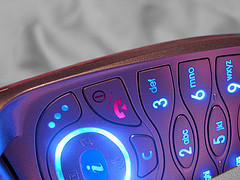Developing the next generation of mobile phones
Posted on 5 March 2009

The latest devices boast cameras, music players, the ability to send and receive email and to browse the internet at relatively high speeds via the 3G digital network. Manufacturers want the next generation of mobile phones to go further, effectively becoming authentic handheld super-computers that can perform a much wider variety of functions such as streaming and recording video.
Overcoming the technical barriers that stand between turning that aspiration into reality is the goal of ongoing research by Dr Neil Audsley, in the Department of Computer Science. He is one of a large number of researchers taking part in the pan-European Embedded Multi-Core Processing for Mobile Communication (eMuCo) project which brings together experts from four universities and leading companies in the mobile phone industry.
The aim of the project is to put the multi-core processors currently found in modern desktop and laptop computers at the heart of the next generation of mobile phones and thereby significantly increase the number of tasks they can do.
Processor manufacturers have already developed multi-core products suitable for use in mobile telephones but significant technological challenges remain. There are two key problems to be overcome. The first is virtualisation, the process by which a complex computer is subdivided to allow for the more efficient running of several applications simultaneously.
The second is the amount of power the new phones will consume. While multi-core processors are very efficient, the functions they will make possible, such as capturing video, place huge demands on batteries. Modern mobile phones are usually performing several tasks at any particular point. Part of Dr Audsley’s research therefore involves investigating how both hardware and software can best be configured for running next generation consumer applications as efficiently as possible in terms of power.
The research is also looking at how the hardware in new mobile phones can be designed to be as stable as possible and so minimise the possibility of phone and internet connections being lost unexpectedly.
The eMuCo project is due to be completed in February 2010 and the results of the research could be found in mobile phones in two years time.
About the researcher

Dr Neil Audsley is a Senior Lecturer in the Department of Computer Science
Contact
Email: Neil.Audsley@cs.york.ac.ukhttp://www-users.cs.york.ac.uk/~neil/
Further information
- Studying in the Department of Computer Science
